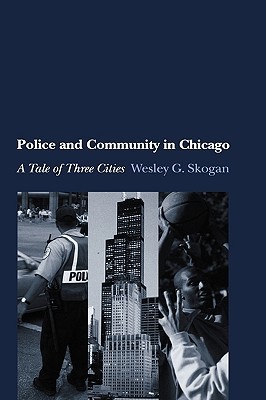
- We will send in 10–14 business days.
- Author: Wesley G Skogan
- Publisher: Oxford University Press, USA
- ISBN-10: 0195154584
- ISBN-13: 9780195154580
- Format: 16.2 x 23.5 x 2.9 cm, hardcover
- Language: English
- SAVE -10% with code: EXTRA
Reviews
Description
In the early 1990s, Chicago, the nation's third largest city, instituted the nation's largest community policing initiative. Wesley G. Skogan here provides the first comprehensive evaluation of that citywide program, examining its impact on crime, neighborhood residents, and the police. Based on the results of a thirteen-year study, including interviews, citywide surveys, and sophisticated statistical analyses, Police and Community in Chicago reveals a city divided among African-Americans, Whites, and Latinos. Each faced distinctive problems when community policing came to Chicago in 1993, and during the next decade the three communities took different routes. There were tremendous improvements in the citys predominately African-American districts, where crime and fear dropped the most. The city's largely white neighborhoods were already solidly behind the police, yet they too registered significant gains. Under pressure from immigration, the Latino population cleaved in two with
predominately Spanish-speaking areas falling behind on multiple measures of crime, disorder and neighborhood decay. Immigration will only continue to grow both in Chicago and around the world. Skogan thus concludes his pathbreaking work with a challenge for the future: more effective ways of responding to the problems facing the city's newest immigrants must now be found.
EXTRA 10 % discount with code: EXTRA
The promotion ends in 17d.12:07:39
The discount code is valid when purchasing from 10 €. Discounts do not stack.
- Author: Wesley G Skogan
- Publisher: Oxford University Press, USA
- ISBN-10: 0195154584
- ISBN-13: 9780195154580
- Format: 16.2 x 23.5 x 2.9 cm, hardcover
- Language: English English
In the early 1990s, Chicago, the nation's third largest city, instituted the nation's largest community policing initiative. Wesley G. Skogan here provides the first comprehensive evaluation of that citywide program, examining its impact on crime, neighborhood residents, and the police. Based on the results of a thirteen-year study, including interviews, citywide surveys, and sophisticated statistical analyses, Police and Community in Chicago reveals a city divided among African-Americans, Whites, and Latinos. Each faced distinctive problems when community policing came to Chicago in 1993, and during the next decade the three communities took different routes. There were tremendous improvements in the citys predominately African-American districts, where crime and fear dropped the most. The city's largely white neighborhoods were already solidly behind the police, yet they too registered significant gains. Under pressure from immigration, the Latino population cleaved in two with
predominately Spanish-speaking areas falling behind on multiple measures of crime, disorder and neighborhood decay. Immigration will only continue to grow both in Chicago and around the world. Skogan thus concludes his pathbreaking work with a challenge for the future: more effective ways of responding to the problems facing the city's newest immigrants must now be found.


Reviews